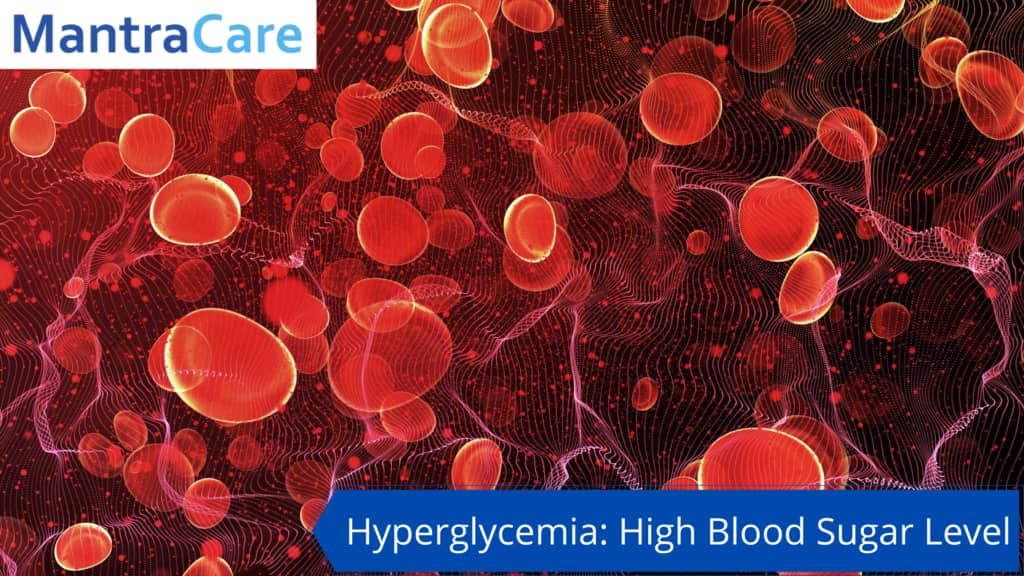Contents
What Is Hyperglycemia?
In simplest terms, the word “hyperglycemia” means “high blood sugar level” or “high blood glucose”. What is your blood sugar level then? The blood sugar level is the amount of glucose or sugar present in your body at a given point in time. Usually, this varies within a certain range. But if this varies abruptly being too high or too low, it is the cause of concern.
Normal blood glucose level:
Blood glucose (or sugar) level varies from low to normal to high. Normally, the blood sugar level of a person is measured, first, when they have not eaten anything for at least eight hours, and the second two hours later after they eat. Before eating the count of the blood sugar level should be less than 100mg/dL for a normal person who is not diabetic. Whereas it can raise from 90 to 110 mg/dL after two hours of their eating.
What Happens In Hyperglycemia?
The very vital part of your internal body is the pancreas. The pancreas secretes insulin that is a hormone responsible for carrying the glucose into the blood all through the body. Hyperglycemia is the body condition where this very function is caused by hindrance. That is, the body is not able to produce or use enough insulin. As a result of which the blood sugar level rises high leading to several other physical issues. And prolonged hyperglycemia causes diabetes.
Types Of Hyperglycemia
There are mainly two kinds of hyperglycemia. They are:
Fasting Hyperglycemia
In such conditions, the sugar level in the blood goes higher than 130 mg/dL after not eating anything or drinking for at least 8 hours.
Postprandial (after meal) Hyperglycemia
Here, the blood sugar level rises higher than 180 mg/dL post 2 hours of your meal.
Hyperglycemia vs. Hypoglycemia
Both these conditions are extremely harmful to the body and can have life-threatening impacts on you. They differ only based on the blood glucose level count in your body. Hyperglycemia occurs when the glucose level in the blood is too high whereas in hypoglycemia the situation is just the opposite i.e. the blood glucose level goes too low.

Symptoms Of Hyperglycemia
The initial signs of hyperglycemia can be as follows:
Frequent Urination
Insulin, when does not use the glucose to produce energy in the body, the glucose level rises high because of which the kidney to maintain the pace excrete the excess glucose through urine. This is the reason a person affected by the problem needs to pay often than a normal person does.
Increased Thirst
Frequent peeing makes you lose a lot of fluid that is needed for the body to keep you hydrated. Urination at a comparatively smaller period of time leads to the dehydration of your body. That’s why you feel the need to have water frequently.
Headaches
In hyperglycemia, the sugar level changes absurdly and abruptly. Such a higher level of fluctuations results in the fluctuation of hormones (epinephrine and norepinephrine) as well. This results in headaches.
Blurred Vision
The eye lens gets swell when the glucose level in your body is too high which causes Blurred Vision. To go back to your normal vision, you would need to maintain the level of glucose in your body.
Fatigue
As mentioned somewhere above, the body is not able to produce glucose to provide energy to the body, therefore, a person with high blood sugar levels feels tired and less active than a person with a normal blood sugar level.
Trouble Concentrating
When the insulin is unable to use glucose and sugar properly, or at all for that matter, the brain too doesn’t receive any of them. This causes hindrance in its functioning leading to the effects in the concentration level of a person.
Blood sugar level more than 180 mg/dL
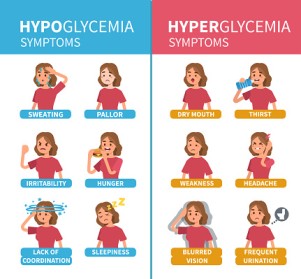
Causes Of Hyperglycemia
There can be several reasons causing a hike in your blood glucose level. They can be:
1) Skipping Insulin or Glucose-Lowering Medicine
- If you are a type 1 diabetic, then your blood glucose level may rise if you have not provided yourself with enough insulin as per the need of your body.
- In the case of type 2 diabetes, where the body doesn’t produce enough insulin properly. Also, the body cells stop reacting to insulin. This results in hyperglycemia (high blood glucose level).
2) Overeating: Eating too many carbohydrates also causes a high amount of glucose in the body.
3) Not exercising: The glucose in the blood acts as fuel for energy in your body. If the energy produced is not being used properly, that is, if the body is not active enough, the glucose rises high.
4) Getting ill: During cold and flu, the body goes through a stressful period resulting rise in blood sugar levels.
5) Stressing out: If you are suffering from stress issues in your personal or professional life, your body might undergo hyperglycemia.
Some people experience a phenomenon called the “dawn phenomenon”. What happens here is that the body produces a bulk of hormones daily around 4:00 a.m. to 5:00 a.m. even this might cause hyperglycemia.
Complications Of Hyperglycemia
Diabetic ketoacidosis
As soon as you go for a blood sugar level test, and if the result is higher than normal, don’t leave it unheard and act immediately. Try your best to pull the amount of sugar level down to normal. Else, you may land into loads of physical issues in the future. Hyperglycemia if not treated initially can lead you to a serious issue called, “Diabetic ketoacidosis” (also called “diabetic coma”).
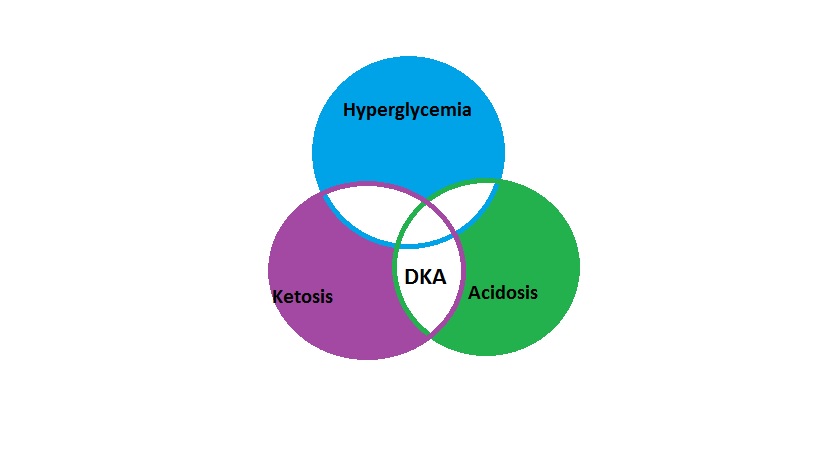
When your body doesn’t have enough insulin, or when your body is unable to use them, the glucose is not as a fuel for energy. Rather, your body starts breaking fats for energy, out of which “ketones” (waste products) are produced. This is released through urine. But overproduction of ketones can’t be managed by the body and they remain stuck in the blood.
This results in the building up of ketones in your blood which then leads to ketoacidosis. They need immediate treatment. The time you notice the following symptoms, rush for the treatment:
I. Shortness of breath
II. Breath that smells fruity
III. Nausea and vomiting
IV. Very dry mouth
Eye Complications
A consistent rise in sugar level ignites the risk of glaucoma by 40% and cataracts by 60%. Also, it may cause diabetic retinopathy that harms the blood vessels of the eye. This even results in vision loss or vision deficiency.
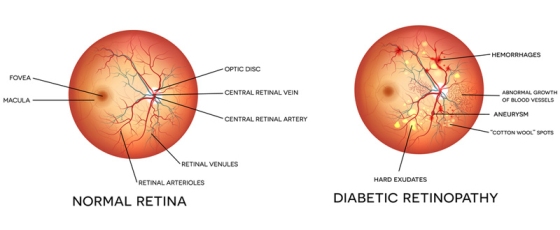
Nerve Damage
A constant rise in the blood glucose level can damage your nerves in many ways. They can be as follows:
1. Peripheral neuropathy: This nerve damage occurs in feet and hands causing numbness, or weakness in those parts. The patient might not feel if any injury hits those parts of the body.
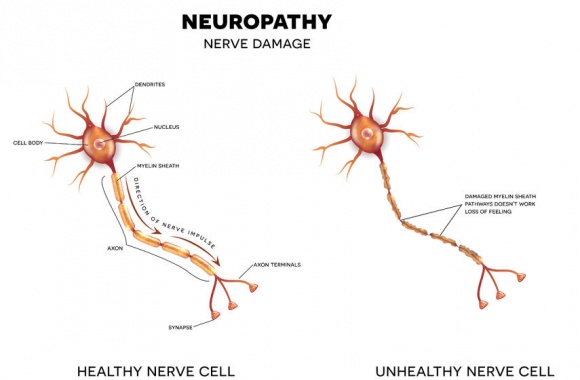
2. Autonomic neuropathy: The automatic processes of the body are affected badly in this condition. Your body may not function properly while the digestion process, sexual functioning, and bladder controlling.
Treatment For Hyperglycemia
The only treatment for hyperglycemia could be to control the sugar level in the blood. There are ‘n’ number ways availing which, you can reach the goal. This can be achieved in both ways. Either you can go for professional help, or you can do it by implementing a few changes in food, sleeping habits.
Medical Treatment
You need to go for immediate treatment in case you are hit with severe hyperglycemia. Some of the treatments usually include:
- Fluid replacement
The process is implemented on those who have lost a lot of fluid from their body through excessive urination as one of the main causes of hyperglycemia. Also, this helps in diluting excessive sugar present in your blood.
- Insulin therapy
Doctors provide supplementary insulin to your body and ask you to take them through your veins. This helps in the reversal process of ketones building.
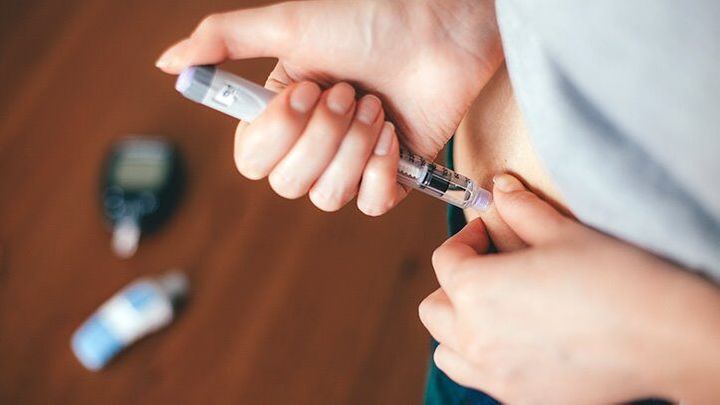
- Electrolyte replacement
The improper use or absence of insulin in the body reduces the functioning of several electrolytes. To maintain the normal purpose of the heart, muscles, and nerve cells, electrolytes are made to enter your body through our veins.
Healthy Food Habits
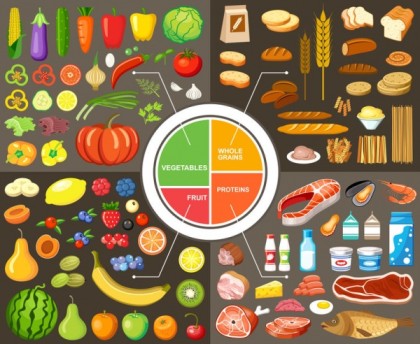
Here are some of the food items and changes in your lifestyle you need to maintain in your diet:
- Carb Management
You need to maintain a balanced diet. Eating too many carbs is going to lead to even worse situations. In hyperglycemia, your blood sugar is already high and if you intake more carbs, the insulin function problem increases even more. Lessen the amount of carbs you have in your diet.
- Increase In Fibre Intake
Fibre helps in the gradual digestion of carbs and hence sugar absorption is comparatively slow. Due to this, there is a gradual process of blood sugar rise. They not only work against high blood sugar levels. Rather, they work for the overall management of blood sugar levels. Food items that include fibre are vegetables, fruits, legumes, and whole grains.
- Hydration
You all know how drinking enough water is important for you. As you drink more water, your kidney drains out the extra sugar through urine. Drinking water reduces the risk of diabetes because as you keep rehydrating yourself, you help your body to lower the blood sugar level.
- Portion Control
Maintaining a moderate weight is a very important factor that helps you in maintaining the blood sugar level. For this, you need to keep track of your calorie intake. These small initiatives might help you out:
- Don’t use larger plates
- Avoid fast foods
- Measure Portions Before Eating
- Go through food labels and the serving sizes mentioned on the packet.
- Always eat slowly
- Low Glycemic Index (GI) Food
The glycemic index is nothing but a measurement of how much time it takes for your food to cause a rise in blood sugar levels. Choosing low glycemic index food helps you monitoring your carbs and calories. These are foods that fall under the category: yogurt, legumes, wheat pasta, non-starchy vegetables, oats, barley lentils, beans, etc.
- Chromium And Magnesium-rich Food
Food items under these categories include beans, bananas, whole grains, dark leafy greens, tuna, dark chocolate, pumpkin seeds, etc. These are the food items that are rich in magnesium lacking which disturbs the blood sugar level control in the body and can even cause diabetes. Chromium is another element that is involved in carb and fat metabolism. It manages blood sugar levels. They include meats, fruits, vegetables, and nuts.
- Use of Apple Cider Vinegar
Apple cider vinegar reduces the rise in the blood. It makes your insulin sensitivity better. You can mix a few ounces of water with apple cider vinegar before taking a high-carb and calorie meal. The apple cider vinegar will maintain the level as required.
- Herbs And Spices
Cinnamon extract also helps in insulin sensitivity. Using berberine (a herb) may help you. However, it may have side effects like diarrhea, constipation, flatulence, and abdominal pain. So before using id on your own, you must consult your doctor. Fenugreek seeds are another source of fibre that is useful for the regulation of blood sugar levels.
Healthy Lifestyle
When you are under stress, hormones such as glucagon and cortisol are produced that are then responsible for the rise in blood sugar levels. To lower the risk, try doing exercise or meditation to calm down your mind regularly.
- Quality Sleep
Enough sleep is no less important than enough food for the body. When you don’t sleep the growth hormones in your body decreases and cortisol level increase. Both hold responsibility for blood sugar level management. So it is necessary for you to get enough amount of good quality sleep.
- Regular Exercise
If you follow a strict and regular exercise plan, you end up maintaining your normal body weight. This further helps your body cells to work more efficiently. The insulin sensitivity gets increased and hence the cells use the available glucose or sugar in the body more productively.
Measuring and monitoring the blood sugar level is the only way to cure hyperglycemia. Once it gets intensified, it will lead you to diabetes (Type 1 and Type 2 diabetes). Keep track of the sugar level and make adjustments according to need. You can try home remedies. But do visit a doctor if you’re suffering severely, to reduce the other possible risks.
A Word From MantraCare
Do you want to get rid of diabetes? Join our online diabetes consultation program and reverse your Diabetes naturally through lifestyle changes such as a Personalized Diet plan, Exercise, dieticians, and health coaches.
